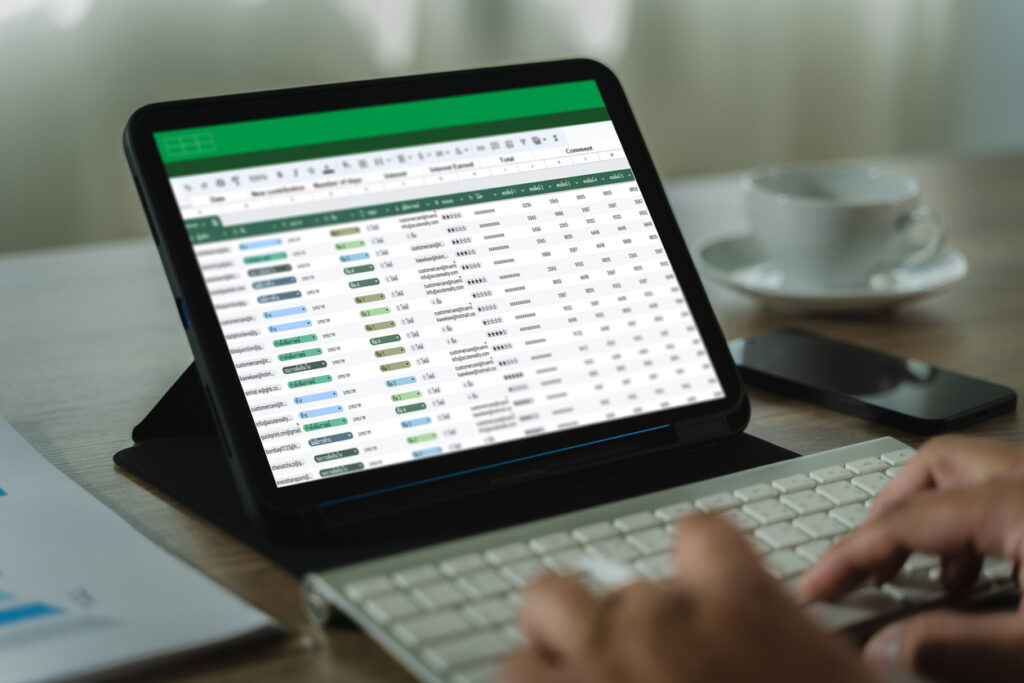At Beyond Plans, we help wine and spirits producers transform their operations through data reliability and centralization. In an industry where performance relies equally on tradition and the ability to anticipate, mastering information becomes a strategic lever.
With €59 billion in turnover and 440,000 direct and indirect jobs, the French wine and spirits industry faces unprecedented challenges. A decline in red wine consumption, overproduction, range rationalization, and margin pressure demand increasingly refined management of resources and flows. In this context, data— from the vineyard to the cellar and then to the customer— becomes a key asset for driving performance.
However, the reality on the ground is often quite different: information is dispersed across departments (production, finance, logistics, sales), stored in spreadsheets or heterogeneous business software. As a result, there are discrepancies in numbers, decisions based on incomplete data, and difficulties in forecasting needs or optimizing stock.
Fragmented Data: A Barrier to Performance
In a wine or spirits house, each department speaks its own language: the cellar master thinks in volumes and vintages, the logistics manager in pallets and expiration dates, and the finance team in euros and cash flow. While this diversity is a source of wealth, it becomes a barrier when information doesn’t flow:
-
Poorly evaluated stock: Without consolidation, the risk of overstock or shortages increases, directly impacting cash flow and customer satisfaction.
-
Uncertain forecasts: The lack of reliable data prevents the anticipation of demand peaks or raw material needs.
-
Delayed decisions: Manual data consolidation slows decision-making, while the market demands agility and responsiveness.
Historically, the industry has relied on artisanal data management. But today, the sector must take a step forward: transitioning from an artisanal approach to an industrial one, without losing its identity.
Centralizing and Ensuring Data Reliability: The Key Role of Anaplan
This is where connected planning, powered by platforms like Anaplan, comes into play. Far from being just a reporting tool, Anaplan allows the centralization of all information (grape varieties, volumes, sales history, stock, financial data) into a single reference framework shared by all departments.
What are the concrete benefits?
-
Real-time visibility: Every stakeholder accesses the same information, updated continuously. Discrepancies are immediately identified, and decision-making is facilitated.
-
Anticipating needs: The platform integrates seasonality, aging cycles, and logistical constraints, allowing for the simulation of various scenarios and adjustments to production or supply plans.
-
Reducing overstock: By cross-referencing sales, production, and stock data, it’s possible to optimize levels, avoid costly surpluses, or prevent disruptive shortages.
-
Enhanced collaboration: Data becomes a common language that eases cooperation between departments and collective decision-making.
From Theory to Practice
Take the case of a cognac producer: the planning must account for aging cycles that last several years, strict storage constraints, and highly fluctuating international demand. Before data centralization, each department managed its own files: the risk of a shortage on one vintage or overstock on another was constant.
With Anaplan, all data is consolidated: the cellar master, logistics manager, and financial team work from the same base. Sales forecasts are cross-referenced with production capacity and available stock. The result: better anticipation of needs, reduced overstock, and a faster response to market changes.
Another example is a champagne house facing extreme seasonal demand (end-of-year holidays, exports…). Thanks to data centralization, they can simulate various production scenarios, adjust their dry goods purchases, and optimize their logistical flows. The immediate gains: less waste, better product availability, and preserved cash flow.
Beyond Technology: Beyond Plans’ Support
The success of a data reliability project doesn’t rely solely on technology, no matter how innovative it is. At Beyond Plans, we emphasize human support: diagnosing existing processes, co-creating models, training teams, and providing post-deployment follow-up. Our deep industry knowledge allows us to tailor each project to our clients’ realities, whether they’re a family-owned business or an international group.








